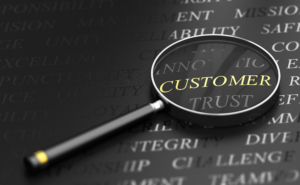Building Client Trust During a Crisis
 As the Novel Coronavirus pandemic disrupts business across the globe, companies are scrambling to assess and mitigate the near-term impact to their business. One of our clients recently shared an email he sent to his team of client relationship partners, reminding them to take a trust-building approach: reach out with information, but foremost with humanity.
As the Novel Coronavirus pandemic disrupts business across the globe, companies are scrambling to assess and mitigate the near-term impact to their business. One of our clients recently shared an email he sent to his team of client relationship partners, reminding them to take a trust-building approach: reach out with information, but foremost with humanity.
Dear [name],
Last week we sent some information to share with your clients regarding COVID19. In addition to the technical support information that we should be sharing, I want to reinforce the importance of communicating directly with our clients on a personal level as well. While it is natural, and even responsible, for us to see how we can support their business, now can be the defining moment to make personal connections and establish long-lasting trust.
While there will be immediate opportunities to help clients with risk assessments, supply chain optimisation, cost reduction and resource augmentation, etc., the objective of contacting them TODAY should be to see how COVID19 is affecting their job, but more importantly to simply see how they are doing personally. Some questions to consider:
- How is COVID19 impacting their day-to-day life?
- How is this impacting how they are making near-term business decisions?
- How is this impacting their direct reports and completing short term projects?
- What other pressures is this putting on them, both professionally and personally?
- How is this impacting them and their family?
During our conference last June, Charlie Green talked to us about what we can do to become our client’s Trusted Advisors. If you recall the “Trust Equation”, two key elements to establish trustworthiness include increasing “intimacy” while lowering our own “self-orientation”. Taking the time to personally call your clients – and not profiteering during crisis – is a good step towards gaining their trust and will pay dividends in the future.
Now is the time to speak with your clients and talk to them as a person and not as a target/fee source.
Kind regards,
Scott
While Scott specifically highlights intimacy and self-orientation, two factors of trustworthiness found in the trust equation, this email is also an excellent illustration of the four trust principles in practice.
We couldn’t have said it better ourselves.
